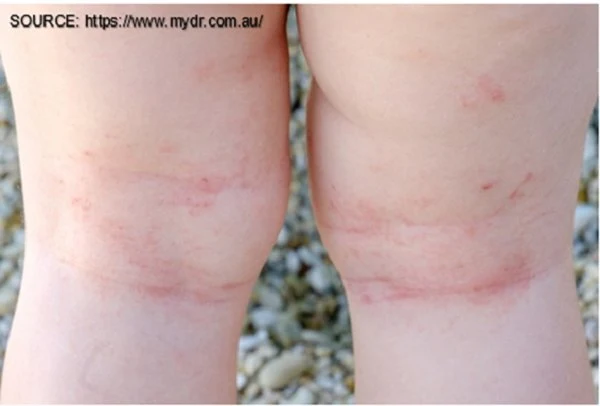Eczema (atopic dermatitis) is a common inflammatory skin condition that causes your skin to become dry, red, itchy and bumpy. Read here more about eczema symptoms, causes and treatments.
Eczema: Symptoms, Types, Causes and Treatments
Eczema is a medical condition where the skin in patches becomes itchy, inflamed, and bleeds. The main symptom of atopic dermatitis is a rash that usually appears on the arms and behind the knees, but can also appear anywhere. In short-lived conditions, it may develop blisters, while if the condition gets prolonged, these blisters harden and the skin becomes thickened. It is also known as Dermatitis.
Today, we will discuss Eczema, also known as Dermatitis. In this disease, the skin becomes rough, itchy, and bleeds. It may develop blisters and scars. It may be localized to a particular area or cover the entire body.
Eczema usually occurs in early childhood and is more common in people with a family history of atopic dermatitis.
What are the Symptoms of Eczema?
Eczema or Dermatitis has its main symptoms:
- Dry Skin
- Itchy skin that worsens by night
- Redness of the skin
- Swelling of the skin
- A skin lesion that may or may not ooze
- Scarring.
A person may display all of them or some of them. Only the best dermatologist will give an accurate diagnosis and perfect treatment to heal the ailment.
What are the Types of Eczema?
Eczema or Dermatitis is of the following types:
- Atopic Dermatitis: common symptoms-dry, itchy, red skin. Appears on folds of the arms, back of the knees, wrists, face, and hands.
- Allergic contact dermatitis.
- Irritant contact dermatitis.
- Seborrhoeic Dermatitis: red scaly, itchy, greasy, and inflamed skin. It appears on areas full of oil glands, including the scalp and the face.
- Stasis dermatitis: the skin changes color, usually in the legs, due to poor blood flow, the cause being varicose veins.
Apart from these, there are some less common forms of dermatitis/eczema such as Dyshidrosis, Discoid, herpetiformis, neurodermatitis, autoeczematization- caused by infection of parasites, fungus, bacteria, or viruses.
What are the Causes of Eczema?
The exact cause of the ailment is unclear, but studies show that it may result from allergens or poor blood circulation.
The type of Eczema a person is suffering from is usually arrived at from the persons' history.
E.g., If a person is often getting their hands wet, it might be irritant Dermatitis caused by detergent.
Similarly, if a person gets exposed to some allergen, it may cause hypersensitivity of the skin as a delayed response.
Atopic Dermatitis is caused by allergens and is hereditary. Someone with asthma can show symptoms of atopic Dermatitis.
When should you consult a doctor?
You should consult your dermatologist when your discomfort doesn't allow you to sleep.
Your skin becomes painful and looks infected. All self-help techniques are showing little to no results.
What is the treatment for Eczema?
 |
| How eczema is treated |
While the doctors can treat some forms of Eczema, some can only be managed by keeping the symptoms in control and are not entirely healed.
A person can avoid Contact dermatitis by avoiding contact with the substance causing it.
Lifestyle changes can benefit in keeping Eczema in control.
Bathing twice a day in warm water without soap. A diluted bleach bath is recommended for Atopic Eczema. Food has no bearing on Eczema. Wearing loose, comfortable clothing is recommended to avoid itching. Keep your surroundings clean.
Moisturizing can alleviate the symptoms.
Other than these, the doctor prescribes medications to heal your Dermatitis. Usually, it is corticosteroids in the topical application form. Only in very severe cases will the patient be given an oral or injectable steroid.
Antihistamines are given to patients who are unable to sleep due to Eczema.
Immunosuppressants in ointments are given to patients who cannot tolerate steroids.
Light therapy might be of help, but there is no supporting evidence. UVA and UVB are used.
Overexposure to UV lights has its risks.
Alternative medicine like acupuncture may reduce itching.
Read Here: Vitiligo Vs. Albinism: Differences and Similarities
Conclusion:
Other than the contact type of dermatitis /eczema, which can be avoided by avoiding the allergen, all other types of Eczema require symptom management. If an infection causes Eczema, then a biopsy will reveal the kind of infection which is helpful to medicate the patient.
Read Also:



